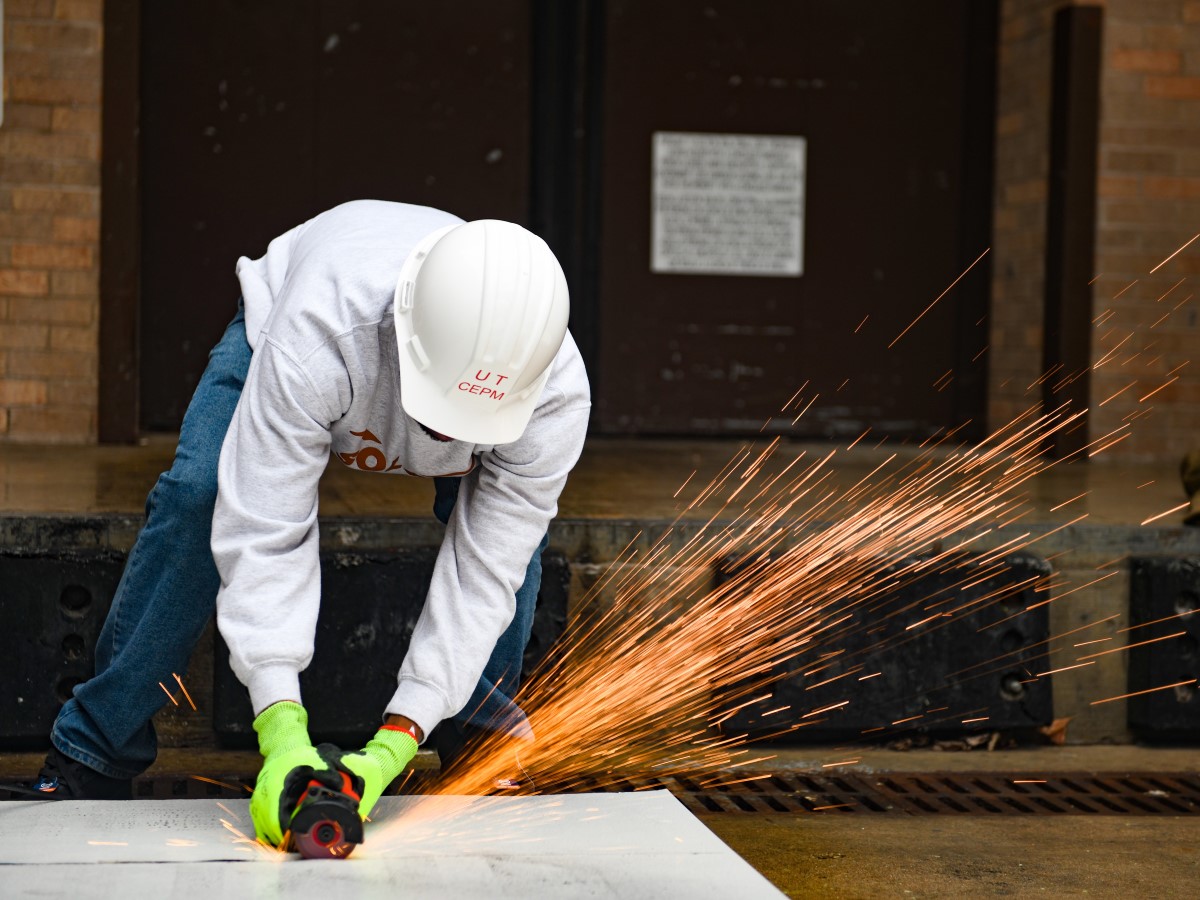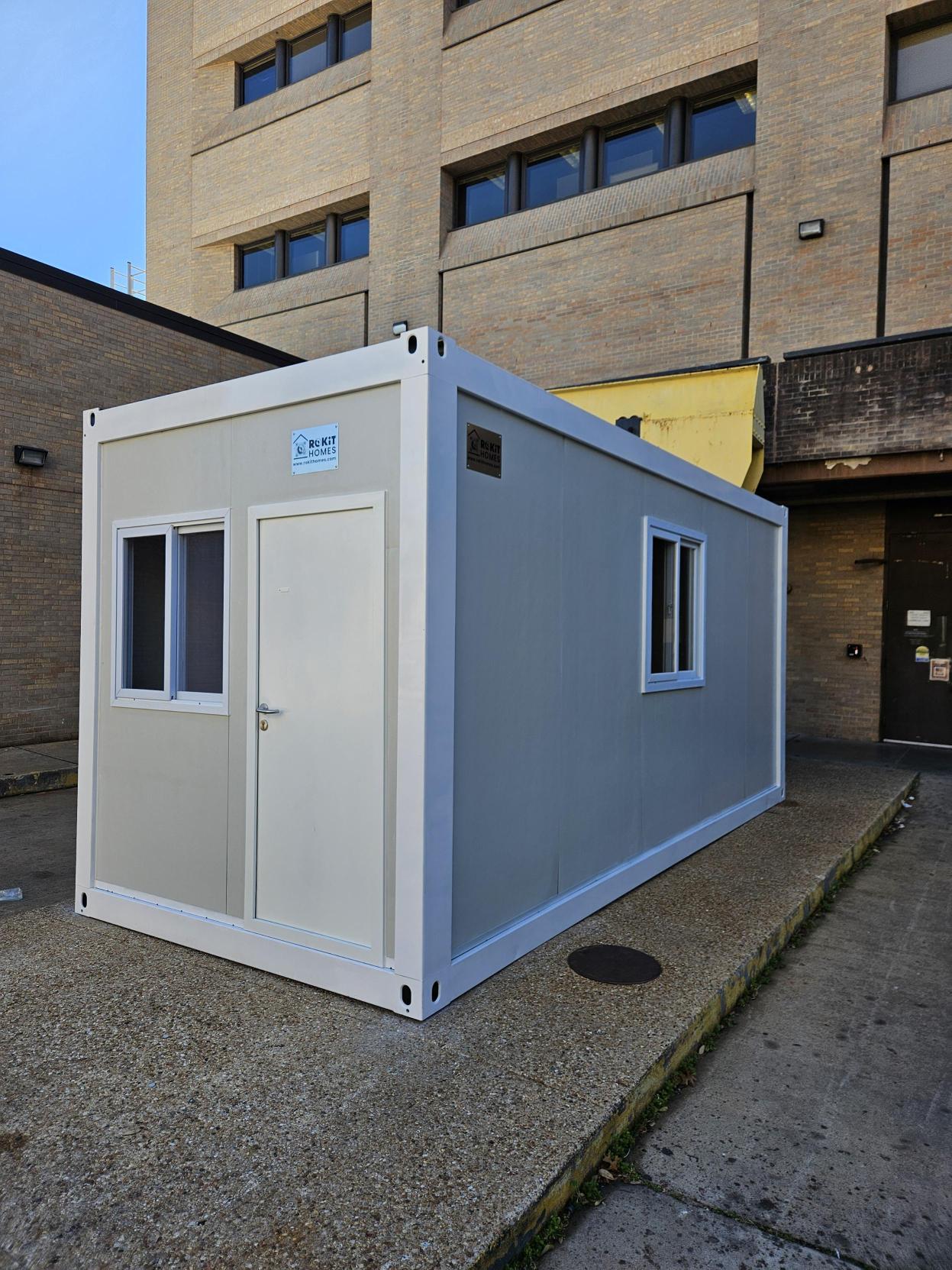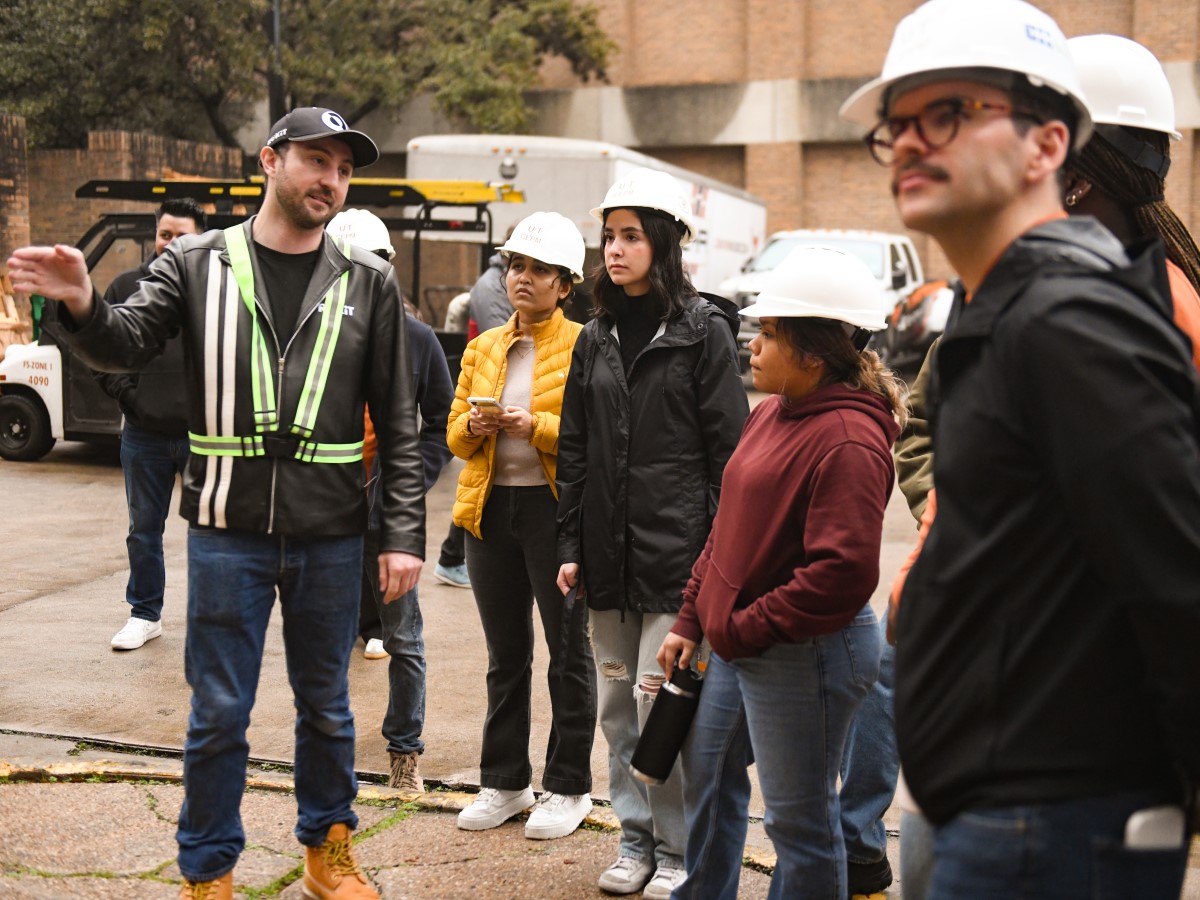Sparks fly in a loading dock behind the Engineering Teaching Center on the Forty Acres. A large metal structure that, at the moment, resembles a giant four-post bed is flanked by students and a construction crew. They’re watching and working, cutting walls for windows.
They ask for volunteers to help. Michael Alada hops right in. The second-year master’s student in sustainable design grabs a saw and starts cutting drywall.
It’s no surprise that Alada stepped up. He’s been doing it for years now. His introduction to housing issues came during the early days of the COVID-19 pandemic, when he worked closely with homeless populations in Minnesota.
“I was an essential worker in 2020 in the Twin Cities, working with the homeless population,” said Alada. “We were able to temporarily house homeless people and work with social workers from Hennepin County to help them find permanent housing. Seeing the impact of that program made me think about sustainable design and the importance of making housing available to the people who need it most.”

A couple hours later, this 20-foot-by-eight-foot structure will be a functional unit designed for people who need immediate housing, including those displaced by disasters. It was created by ROKiT Homes and donated to UT by John Paul DeJoria, chairman of the company.
Over the next year, several researchers from the Cockrell School of Engineering will use this unit, and another at the J.J. Pickle Research campus, to perform hands-on housing research.
“We need to rethink how we build affordable housing at scale so we can satisfy the tremendous need across the country,” said Christopher Rausch, assistant professor in the Fariborz Maseeh Department of Civil, Architectural and Environmental Engineering and one of the researchers working on the unit. “Having the ability to tinker with these units will give us a lot more information.”

DeJoria, an Austin resident, co-founded hair care company John Paul Mitchell Systems and tequila maker Patron Spirits. Once homeless himself as a young man, DeJoria has supported numerous causes to reduce homelessness.
In 2021, DeJoria and his wife, Eloise, gave $2 million to the Dell Medical School at UT through their JP’s Peace, Love and Happiness Family Foundation to establish an endowed chair focused on health services for homelessness.
“I know what this University has to offer- there are so many great inventions and researchers, and eager students to expose to hands-on opportunities,” said DeJoria. “With this donation of two ROKiT homes, we are looking at developing and enhancing permanent solutions to address affordable housing challenges and shortages. As a proud Texan, this is a big deal for me, because these ROKiT homes will give our University the opportunity to play with and innovate on them to make their impact even greater.”
Solutions like ROKiT’s small, modular, stackable homes could play an important role in increasing emergency housing, Rausch said. They can be quickly delivered and assembled, which means they could help in emergency situations like the recent Los Angeles wildfires, or quickly provide temporary solutions to get people off the street and start the transition to permanent housing.
About a dozen of Rausch’s graduate students, from several disciplines, are watching and participating in the buildout of this ROKiT unit as part of his course, CE 397, industrialized production of the built environment. For the students, it’s an opportunity to apply their engineering skills to one of society’s biggest problems.
Rachel Okoronkwo was excited to move from talking about solutions to help people to actually participating in them. The junior architectural engineering major volunteers at various organizations across Austin that aim to help the local homeless population.
“Projects like this are very important to come up with a solution to (problems of homelessness) and increase affordable housing. That’s something that resonates with me.”
Rachel OkoronkwoCockrell School of Engineering

Rausch, who worked in construction before joining The University of Texas at Austin in 2023, is researching affordable housing. He is leading the Equitable Technologies for Housing Innovation Center (ETHIC), a collaboration with the School of Architecture at UT as well as experts from Texas Southern University, Virginia Tech University and more. They aim to develop and promote new ways to increase housing supply, lowering the cost of building and making it more affordable for residents.
Rausch plans to study this unit with graduate and undergraduate students from various angles, from construction to zoning issues and more. One example is utility connection. Modular housing like this, units that can be trucked in and then assembled on site, still have to connect to water and other utilities.
Rausch isn’t the only faculty member planning to use the units for research. Architectural engineer Atila Novoselac is developing a retractable canvas that reflects sunlight and heat. The goal is to make buildings more efficient and help make older structures without air conditioning more viable amid the Texas heat.
Having access to real-life aspects of a problem is critical for both research and education. And it’s a chance for students like Alada and Okoronkwo to get their hands dirty.
“This being hands-on is great for us to test and try out new things. It allows us to physically make change, rather than just talking about it. It’s a great way to learn.”
Christopher RauschCockrell School of Engineering
